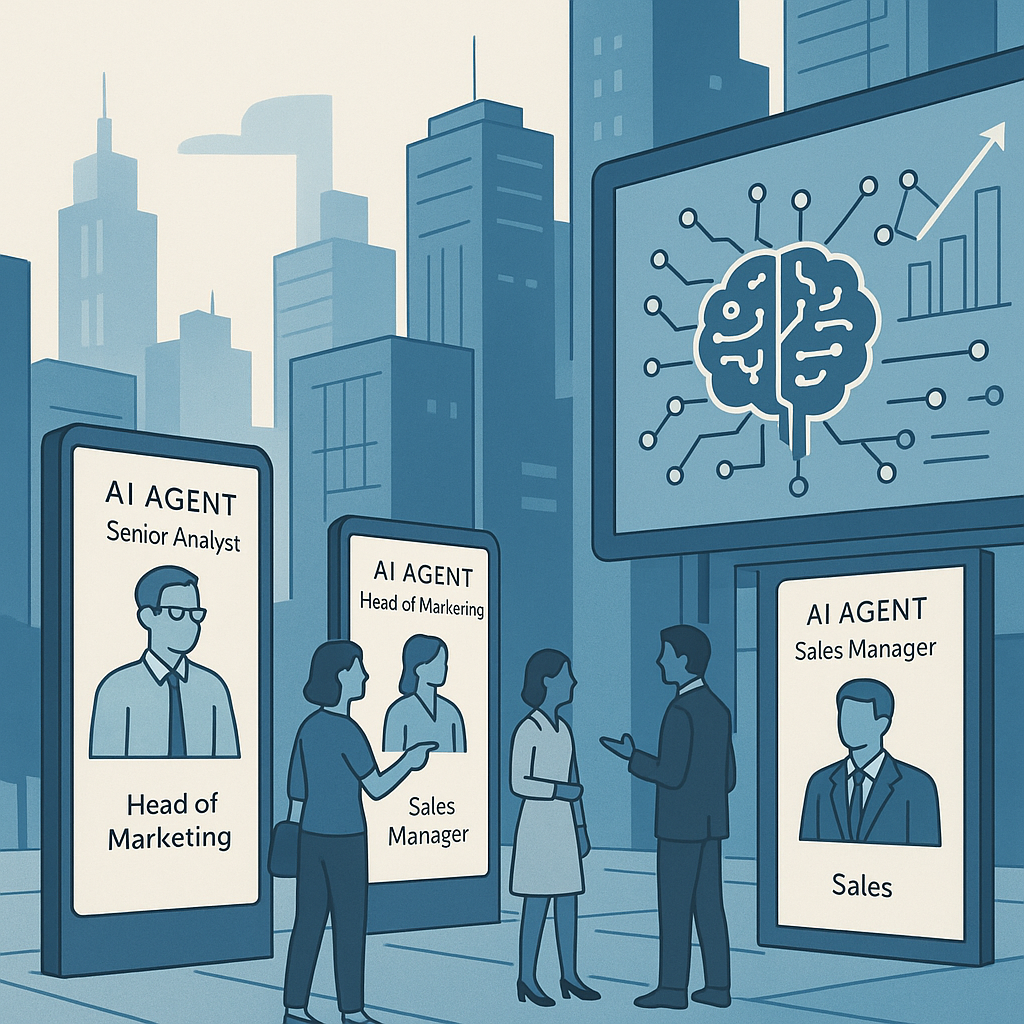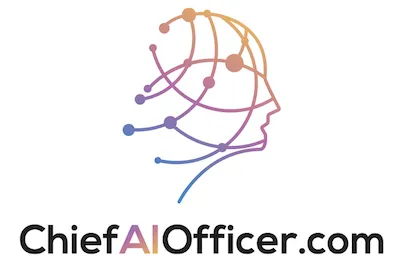
Mastering AI: Insights from Pebbles AI Founder
Mastering AI in Business: Insights from Emin Can Turan of Pebbles AI
Introduction: Overcoming AI Overwhelm
Have you ever wondered how AI could transform your business but felt overwhelmed by where to start? You're not alone. Many business owners are watching the AI revolution unfold but aren't sure how to harness its power effectively.
In our latest podcast episode, we sat down with Emin Can Turan, the brilliant mind behind Pebbles AI, a groundbreaking AI platform designed to democratize marketing strategy and business intelligence for companies of all sizes.
The Problem with Traditional Business Intelligence
Let's face it, there's a massive gap in the market. Large corporations like Coca-Cola and Unilever can afford to buy strategy intelligence from consulting giants like McKinsey, BCG, and Bain. But what about the rest of us?
Small and medium-sized businesses typically face two expensive options:
Hire a head of marketing (costing $100,000–$300,000 annually)
Work with consultants or marketing agencies with inconsistent performance
This unfair distribution of knowledge and expertise has frustrated Can for years. He points out that while we all know 9 out of 10 companies fail, many don't realize that most failures are attributed to go-to-market reasons.
"It should not come as a surprise to all of us that nine out of ten companies fail, but we often don't know that the majority of those failures are actually attributed to go-to-market reasons," Can explains.
How AI Is Leveling the Playing Field
Can's mission with Pebbles is clear: to give small and medium-sized businesses access to the same level of strategic marketing intelligence that was previously only available to large corporations.
"The question was how do I get my proprietary strategy models, my scientific methodologies, as well as our very clever persuasion sciences into a SaaS platform enhanced by AI for every company to use," Can shares.
What makesPebbles unique is that it doesn't just leverage generative AI, it creates autonomous agents that think like:
A senior analyst at McKinsey
A head of marketing at Google
A high emotional intelligence sales manager from Microsoft
These agents work together to provide comprehensive business intelligence that would normally require a team of high-paid experts.
Understanding AI Agents: The Next Evolution
If you're familiar with ChatGPT, think of agents as the next step up. While ChatGPT requires you to control and direct it, agents have autonomous thinking baked in.
Can explains it perfectly: "Before it gets to you, it's almost like having your own super smart assistant next to you. The IQ is much higher, it's much more knowledgeable, and it knows exactly what you want or what your business is."
Imagine having a group of agents with different expertise working together:
One agent handling market strategy
Another focused on marketing communications
A third specializing in sales approaches
They communicate with each other, keep themselves in check, and deliver comprehensive, ready-to-use outputs. This saves you days, if not weeks, of work – and frees up your mental bandwidth for more important tasks.
Who Benefits Most from AI Tools Like Pebbles?
According to Can, three groups will benefit most from platforms like Pebbles:
Startups and scale-ups (5–50 employees) will see a huge difference in their go-to-market effectiveness
Larger companies (500–3,000 employees) with inefficiencies in their marketing, sales, and product teams
Channel partners like global accelerators (Y Combinator, Founders Institute) and marketing/lead gen agencies who can provide more value to their clients
The Urgency of AI Adoption
Can emphasizes that now is the time to embrace AI. Waiting even a year could put you at a significant disadvantage.
"If you wait a year from now, there are already top strategy consultancies starting to include AI training with their new graduates," Can points out.
This echoes Peter Diamandis's prediction: "By the end of this century, there will be two types of companies: those that are AI-enabled and those that are extinct."
Getting Started with AI: Practical Advice
For those new to generative AI, Can offers practical advice:
Be clear about your goal: "My goal is to write a newsletter to XYZ."
Provide context about your audience: "My audience lives in New York, they're founders of larger companies, their problems are XYZ."
Show what good looks like: Provide examples so the system understands your benchmark.
Take an iterative approach: Run it, review it, refine it to improve precision and accuracy.
Can also recommends following AI experts on Twitter/X and spending just 30 minutes a day reading about AI developments.
The Ethics of AI Development
Unlike some in Silicon Valley, Can isn't solely focused on becoming "the first billion-dollar one-person company" enabled by AI. His approach is refreshingly ethical:
"I have this very strong sense of injustice where startups and scale-ups and midsize companies can't afford to reach a certain level where all consumers and society itself can benefit from it."
He's concerned about the direction of AI development, noting: "I'm a bit concerned that capitalism is taking the forefront over AI ethics. It should be balanced."
Looking Forward: The AI Timeline
Can predicts that in the first 2–5 years of widespread AI adoption, we'll see significant improvements in our quality of life:
"We'll have more time to go home and spend time with our loved ones, and our efficacy will be high."
After that? "It's anyone's guess," he admits.
Final Thoughts
As Can reminds us: "Be vigilant and educate yourself. That's the only way we can make sure that the AI revolution goes in a path where it increases our quality of life as opposed to endangering our way of life."
The AI revolution isn't coming – it's here. Those who embrace it now will have a significant advantage over those who wait. Tools like Pebbles are making advanced AI capabilities accessible to businesses of all sizes, democratizing what was once the exclusive domain of enterprise corporations.
FAQ: AI Agents and Software Development with Emin Can Turan
Who is Emin Can Turan and what is Pebbles AI?
Emin Can Turan is the founder of Pebbles AI, a new B2B SaaS platform that democratizes high-level marketing strategy and market intelligence. With a background at major tech companies like Google, Cisco, and Walmart, Emin Can is building Pebbles AI from Ukraine while working with global accelerators. The platform aims to give small and medium businesses access to McKinsey-level strategic thinking through AI agents.
What problem does Pebbles AI solve for businesses?
Pebbles AI addresses the unfair distribution of high-level marketing and strategy knowledge. While multinational companies can afford $100K-$300K marketing executives or expensive consultancy fees from firms like McKinsey, BCG, and Bain, smaller businesses are left to figure things out themselves. Since 9 out of 10 companies fail primarily due to go-to-market issues, Pebbles AI democratizes access to proven business methodologies and strategic frameworks.
What's the difference between using ChatGPT and using AI agents?
With ChatGPT, you maintain control and must manually iterate. If you want changes (like converting American English to British English), you have to explicitly request them. AI agents have autonomous thinking built in - they anticipate your needs and make intelligent decisions before presenting results. Agents can work together, sharing information and checking each other's work, essentially functioning like a team of experts (strategy analyst, marketing head, sales manager) collaborating on your behalf.
What technical knowledge do users need to use AI agents effectively?
Emin Can advocates for a balanced approach: while his AI director says no technical knowledge is needed, Emin Can believes users should understand basic AI principles - similar to learning basic physics or chemistry in school. You don't need to be technical, but understanding the logic and basic principles helps you use the tools more effectively. Pebbles AI includes educational tooltips that explain the science behind each function for curious users.
What types of businesses benefit most from Pebbles AI?
Three main categories benefit most: 1) Startups and scale-ups with 5-50 employees who need strategic guidance, 2) Large companies with 500-1000+ employees that need to harmonize their marketing, sales, and product teams into efficient go-to-market machines, and 3) Channel partners like global accelerators, marketing agencies, and lead generation companies who can use it to provide more value to clients while gaining competitive advantage.
How has generative AI changed software development compared to pre-ChatGPT era?
The change has been "huge" according to Emin Can. Generative AI enables the creation of autonomous agents that can think and provide actionable intelligence like senior McKinsey analysts or Google marketing heads. These agents incorporate empirical studies, scientifically proven methodologies, and market-tested models. Every business case study within Pebbles AI has specific sciences connected to it, maximizing persuasion and communication effectiveness.
What should AI-curious business owners focus on when learning about AI?
Emin Can recommends starting with generative AI fundamentals and experimentation. Be very clear about your goals, provide specific audience characteristics (but keep it concise), and show the AI what good looks like as a benchmark. Use an iterative process to refine accuracy. Follow smart AI engineers on Twitter/X who explain concepts in accessible language, and listen to podcasts that translate technical concepts into practical applications.
Are we entering a period where early AI adopters will have insurmountable advantages?
Yes, according to Emin Can. Unlike previous technologies where late adopters could eventually catch up, AI adoption requires cultural acceptance and learning curves that take time. Companies waiting a year or more to adopt AI will not be able to catch up to early adopters. The technology moves too fast, and the competitive advantages compound over time.
How do AI agents compare to current "agent-building" platforms?
Most current platforms that claim to build agents are limited compared to what Pebbles AI offers. True agent development requires structured, logical training with deep domain expertise. Building effective agents is like training specialists - it requires intimate knowledge of business workflows, proven methodologies, and scientifically-backed frameworks. This level of sophistication isn't easily democratized and represents significant intellectual property.
What ethical considerations does Emin Can have about AI development?
Emin Can expresses concern about capitalism taking precedence over AI ethics, especially with recent developments at OpenAI. Pebbles AI blocks access from certain countries (Iran, North Korea, Russia) to prevent misuse for propaganda or scams, particularly during election periods. The platform's persuasion capabilities are powerful enough to influence mass populations, so responsible deployment is crucial.
What's Emin Can's long-term vision for AI's impact on business and society?
Emin Can predicts the first 2-5 years will improve quality of life, giving people more time with loved ones while increasing work efficiency. However, he's concerned about the concentration of power in large corporations that acquire smaller AI companies, reducing competition. He advocates for tools like Pebbles AI that help maintain a healthy competitive landscape where smaller businesses can thrive alongside larger ones.

